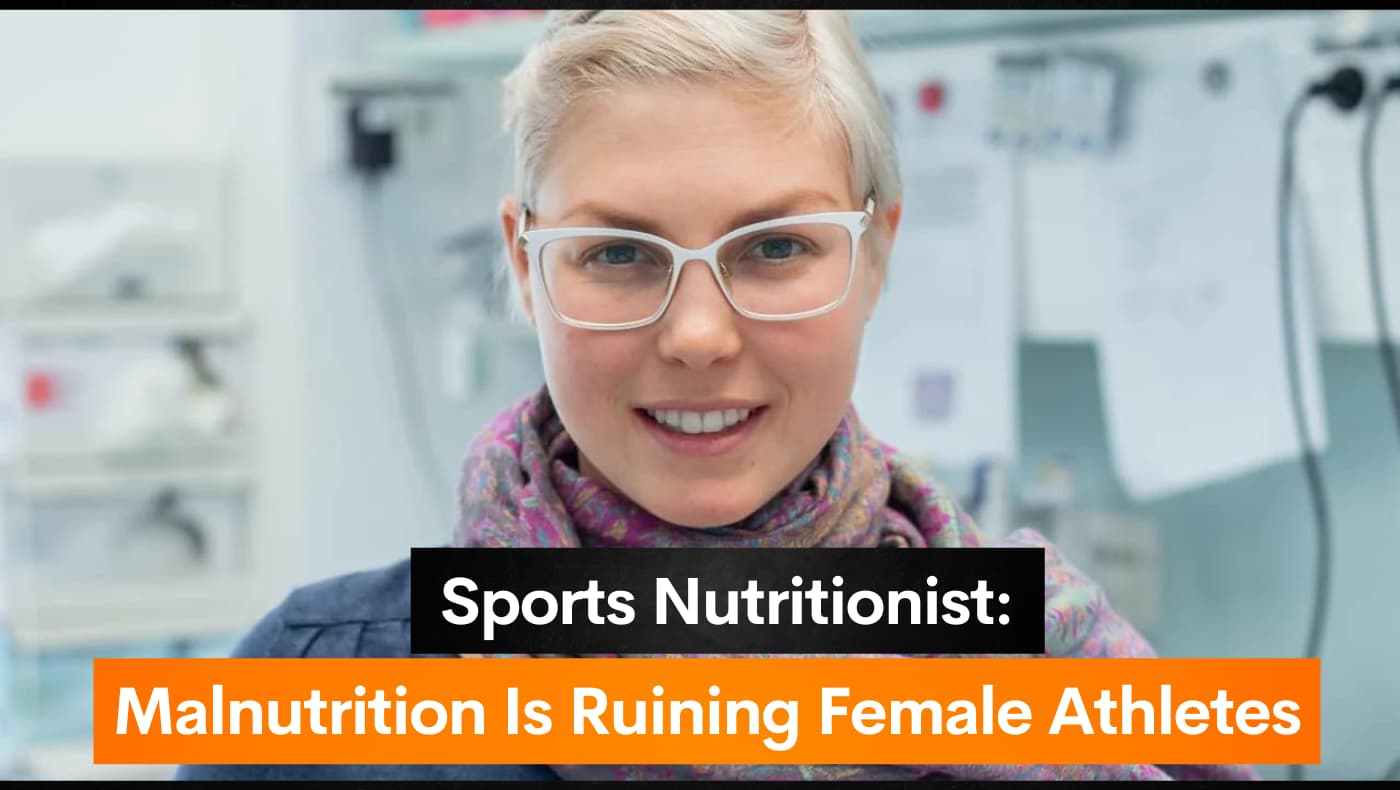Tina Goršek Šparovec, a researcher at the Medical University of Graz, works at the Human Performance Centre alongside Dr. Tim Podlogar. While pursuing her PhD on stem cells and hormones at the Department of Obstetrics and Gynecology, Tina also tackles an alarming issue in sports: malnutrition. Though common among male athletes, her focus lies on young women, whose health often suffers severely due to malnutrition.
From Biotechnology to Biomedicine
Tina, how did you end up in this study program?
“I was never interested in food—I was interested in research. My studies focused on understanding the body, its physiological aspects, and conducting experiments. Writing a PhD on hormones and stem cells was an opportunity I couldn’t pass up, and I also wanted to experience Austria’s German culture.”
But you also work in nutrition?
My PhD thesis is not about nutrition. Nutrition is my part time job at the Human Performance Centre. There, I work on endocrinology, which is the functioning of hormones, in relation to training and nutrition.

The Rising Issue of RED-S
What’s a main problem in sports nutrition today?
Simply put, young women (and men) don't eat in sufficient quantities, while also pushing themselves too hard athletically. This disrupts the hormonal balance and leads to Relative Energy Deficiency in Sport, also known as RED-S.
You’ve experienced this personally, right?
That is correct. I used to cycle and go to the gym. I tried many diets to be as thin and light as possible. Everyone was telling me that was a good thing and I would be able to be faster uphill. This blinds you and makes you want to get even thinner.
You start to eat less and less. You can spend several hours on the bike and eat nothing. After a training session, you don't consume a recovery drink. You also don't know what to eat around your training sessions.
What are the consequences?
This can quickly affect your immune system. You lose your menstruation, have trouble sleeping, motivation for training declines, and during training you often "bonk", which means you end up with no energy.
The Link Between Nutrition and Injury
Can malnutrition cause injuries?
Personally, I was only injured because of my clumsiness. But it definitely can. Runners with RED-S often experience stress fractures. You can go for a light run, and all of a sudden a little bone in your foot breaks or, even worse, in your hip. Malnutrition and absence of sexual hormones represent an increased risk of stress fractures.
Is this solely due to a lack of calcium or magnesium?
No. Good absorption of calcium requires estrogen. Estrogen is also involved in how the bones rebuild and break down. After each training session, the bones start to remodel. After being pressured, the normal process is for the bone to become stronger. Young women (and men) who are in an energy deficiency don't have enough energy or the right hormones to rebuild their bones.
Within six months after these young athletes enter RED-S, the bones break down faster than they rebuild. This quickly leads to osteopenia and osteoporosis.
I can give the example of a 17-year old girl who came to me for help. She already had osteopenia and had lost her menstruation.
What is most worrying is the fact that after thirty years of age, it is very difficult for us to acquire bone mass, which means that if an athlete enters adulthood with a low bone mass, they will have a lot of bone-related health issues in their old age.
Why do coaches overlook these dangers?
Many are in denial. They prefer that their girls are light, which also means they have light bones. They see it that as an advantage. Coaches should be careful not to let their athletes conclude their careers half-disabled with serious fractures or osteoporosis.
Is it normal for a female athlete to miss a menstrual cycle?
In athletic circles, there is this belief that it is perfectly normal for female athletes to be without menstruation. Yes, it is perfectly normal that before a race, when your training sessions are really intense, you skip a menstrual cycle or two.
But it definitely is not normal if it lasts for several years. Such an athlete cannot be successful for long. She may be great at 16 or 17 years of age, but she won't be able to maintain that long term without serious consequences.
The Role of Carbohydrates
Which macronutrient is most important for balance?
Carbohydrates. Our brain is constantly detecting how much food we ingest, what is the concentration of sugar in the blood, how much energy is acutely available. If these signals are missing, the body concludes there is no energy and shuts down its less important functions.
The biggest mistake coaches make is instruct their athletes not to eat so many carbohydrates, sugar is the most important signal for a female athlete.
Why do some athletes still avoid carbohydrates?
They are afraid of carbohydrates. In this industry people believe that carbohydrates will make them fat. This is why they are afraid to ingest the appropriate amount. And at the same time, there is pressure from their peers: "Will you really eat that much?" or "You eat for two or you eat more than a boy."
How does lack of carbohydrates affect performance?
No matter how thin you are, if you don't consume enough carbohydrates around your training session, your training will be unsuccessful, especially at higher intensities.
Studies demonstrate that athletes who didn't eat enough achieved significantly inferior results in training sessions and tests. There was no progress, and sometimes their performance even declined.
We have young male and female athletes who work hard, but they are malnourished and because of that don't achieve good results. We could say they train for nothing.
Consuming a bag of candy, an energy gel, or a sports drink, such as Nrgy Unit Drink, could make all the difference in the world.
 Jessica Piaceski is another young top-level athlete who personally experienced the catastrophic consequences of RED-S.
Jessica Piaceski is another young top-level athlete who personally experienced the catastrophic consequences of RED-S.
Navigating Research and Misinformation
You seem quite certain. How are you so sure?
It is important to read the correct literature, think critically, go to various conferences on the subject of sports and nutrition, female physiology, endocrinology, etc. It is such a complex topic. Not every article is good.
How do you separate the "good" from the "bad" research?
During my studies I wrote many articles and papers. This teaches you to find a good article, examine it critically, and how to evaluate its methods and conclusions.

